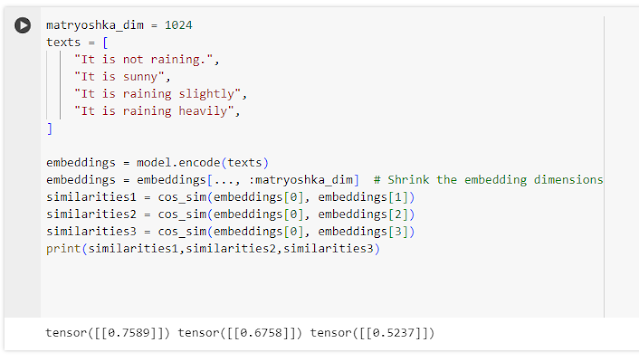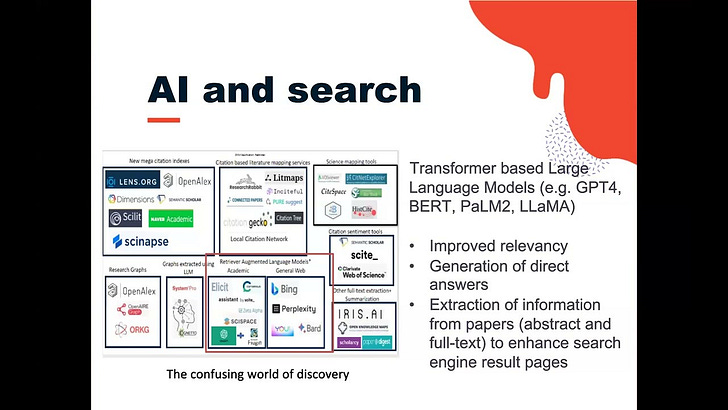
I've spent a large part of my career as an academic librarian studying the question of discovery from many angles.

I've spent a large part of my career as an academic librarian studying the question of discovery from many angles.

Earlier related pieces - How Q&A systems based on large language models (eg GPT4) will change things if they become the dominant search paradigm - 9 implications for libraries In the ever-evolving landscape of information retrieval and library science, the emergence of large language models, particularly those based on the transformer architecture like GPT-4, has opened up a Pandora's box of possibilities and challenges.

Note: This is a lightly edited piece of something I wrote for my institution What is Google’s Search Generative Experience (SGE)? In past ResearchRadar pieces, we have discussed about how search engines both general (e.g. Bing Chat, Perplexity) and academic (e.g Elicit, Scite Assistant, Scopus (upcoming)) are integrating search with generative AI (via Large Language Models) using techniques like RAG (Retrieval Augmented

A decade ago in 2012, I observed how the dominance of Google had slowly affected how Academic databases and OPACs/ catalogues (now discovery services) work.

On September 2023, OpenAI announced that ChatGPT Plus would be enhanced in three ways 1. It would allow you to speak directly with GPT and it would also be able to reply in voice 2. It would be able to create images using DALL-E 3, OpenAI's image generation model 3. It would be able to accept image inputs Since I finally gained access to these features, I will briefly review them with my thoughts on how impactful they might be for library

List of academic search engines that use Large Language models for generative answers (for the latest version - see this page) This is a non-comprehensive list of academic search engines that use generative AI (almost always Large language models) to generate direct answers on top of list of relevant results, typically using Retrieval Augmented Generation (RAG) Techniques. We expect a lot more!

One of the earliest themes of this blog was to track tools that not only helped with discovery but also with delivery, helping users to gain access to full-text via institution subscriptions (and of course via Open Access) even if they did not start off the library homepage.

I've been a subscriber of OpenAI's ChatGPT plus for a while though I have been struggling to justify it to myself for a while until recently.

I was asked to give a talk at CILIP Conference 2023 for the Data & AI panel. I was given 10 minutes to send a recording which I eventually delivered. But here's an extended 40-minute recording before I cut it down. As I was just practicing, the delivery might not be the best, and in fact the final 10-minute version might be better!

As expected more academic search engines are starting to adopt the near-human Natural language understanding and natural language generation capabilities of Large Language Models. This seems to be done in two main ways. Firstly, it is used to help generate direct answers to questions.

In recent years, Elsevier has provided relatively good access to their content via APIs, whether it be via the Scopus API for metadata including bibliometrics or even full-text via Sciencedirect API as long as you are an institutional customer, typically at no additional fee. My suspicion is this feature isn't that well known even among librarians.